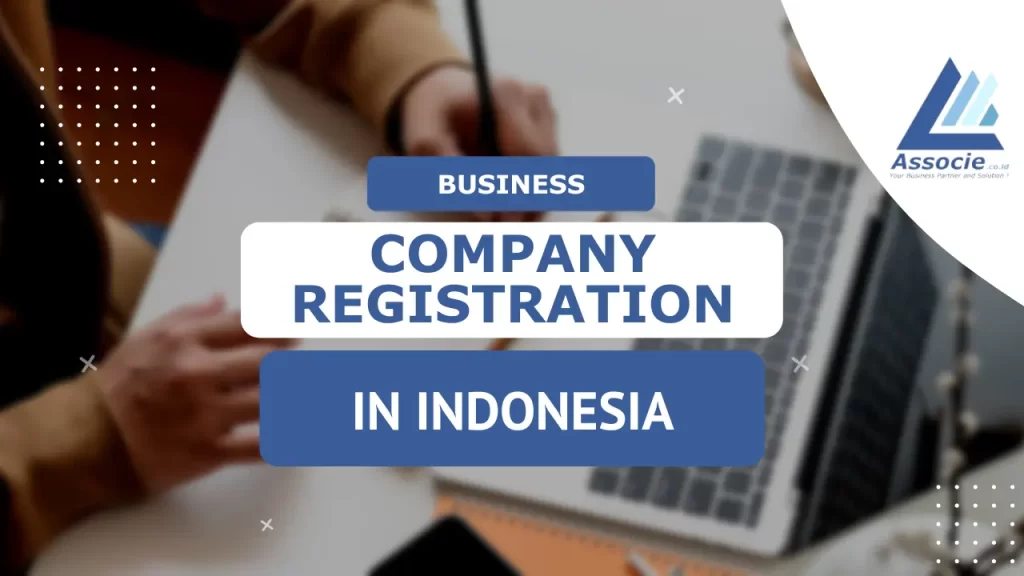How to Register a Company in Indonesia: A Complete Guide for Foreigners
Indonesia is a country that offers many opportunities for foreign investors who want to set up a company here. With a large and growing market, abundant natural resources, and a strategic location in Southeast Asia, Indonesia has a lot of potential for business growth and expansion. However, to register a company in Indonesia, you need to understand the regulatory framework and the legal requirements that apply to foreign-owned companies. This article will help you to understand the steps and procedures involved in registering a company in Indonesia as a foreigner.
Table of Contents
What You Need to Know about Company Registration in Indonesia
Before you register a company in Indonesia, you need to know some important facts and regulations that affect foreign investors. Here are some of them:
- Foreign investors can only set up a limited liability company (PT) in Indonesia, which can be either fully foreign-owned or partially foreign-owned. The percentage of foreign ownership depends on the business sector and the negative investment list (DNI), which specifies the restrictions and conditions for foreign investment in certain sectors.
- Foreign investors who want to set up a fully foreign-owned company (PT PMA) need to obtain an approval from the Investment Coordinating Board (BKPM), which is the government agency that oversees and regulates foreign investment in Indonesia. The BKPM will issue an investment license (Izin Prinsip) that allows the foreign investor to establish a PT PMA in Indonesia.
- Foreign investors who want to set up a partially foreign-owned company (PT Penanaman Modal Asing or PT PMA) need to have a local partner who owns at least 1% of the shares. The local partner can be either an individual or a legal entity. The PT PMA also needs to obtain an approval from the BKPM and an investment license (Izin Prinsip).
- The minimum authorized capital for a PT PMA is IDR 10 billion (about USD 700,000), and the minimum paid-up capital is 25% of the authorized capital. The paid-up capital can be either in cash or in kind (such as assets or equipment). The BKPM may require proof of the paid-up capital, such as a bank statement or an auditor’s report.
- The PT PMA needs to have at least two shareholders, one director, and one commissioner. The shareholders can be either individuals or legal entities, and they can be either foreigners or locals. The director and the commissioner are responsible for managing and supervising the company, respectively. The director can be either a foreigner or a local, but the commissioner must be a local.
Types of Company in Indonesia
As mentioned above, foreign investors can only set up a limited liability company (PT) in Indonesia, which can be either fully foreign-owned or partially foreign-owned. However, there are different types of PTs that have different characteristics and requirements. Here are some of them:
PT PMA
This is the most common type of company for foreign investors who want to have full control and ownership of their business in Indonesia. A PT PMA can engage in any business sector that is not restricted by the negative investment list (DNI). A PT PMA needs to have at least two shareholders, one director, and one commissioner. The shareholders can be either foreigners or locals, but the director must be a foreigner. The minimum authorized capital for a PT PMA is IDR 10 billion, and the minimum paid-up capital is 25% of the authorized capital.
PT PMDN
This is another type of company for foreign investors who want to have partial ownership of their business in Indonesia. A PT PMDN is a domestic investment company that has at least one local shareholder who owns at least 1% of the shares. A PT PMDN can engage in any business sector that is not restricted by the negative investment list (DNI). A PT PMDN needs to have at least two shareholders, one director, and one commissioner. The shareholders can be either foreigners or locals, but the director must be a local. The minimum authorized capital for a PT PMDN is IDR 50 million, and the minimum paid-up capital is 25% of the authorized capital.
PT Local
This is another type of company for foreign investors who want to have partial ownership of their business in Indonesia. A PT Local is a local company that has at least one local shareholder who owns at least 51% of the shares. A PT Local can engage in any business sector that is not restricted by the negative investment list (DNI). A PT Local needs to have at least two shareholders, one director, and one commissioner. The shareholders can be either foreigners or locals, but the director must be a local. The minimum authorized capital for a PT Local is IDR 50 million, and the minimum paid-up capital is 25% of the authorized capital.
Pre-Registration
Before you register your company in Indonesia, you need to complete some pre-registration steps, such as:
Company Name
You need to choose a unique and suitable name for your company that reflects your business activities and objectives. The name must consist of at least three words, and it must not be similar to existing companies, government institutions, or organizations. The name can be in English or other languages for PT PMAs, but it must be in Indonesian for PT PMDNs and PT Locals. You need to reserve the name by applying to the Directorate General of Legal Administration Affairs, which will verify the availability and suitability of the name.
Company Officers
You need to appoint the shareholders, director, and commissioner of your company. The shareholders can be either individuals or legal entities, and they can be either foreigners or locals. The director and the commissioner are responsible for managing and supervising the company, respectively. The director can be either a foreigner or a local, but the commissioner must be a local. You need to provide the identification documents of all the company officers, such as passports, identity cards, tax numbers, etc.
Registration
After you complete the pre-registration steps, you can proceed to register your company in Indonesia. The registration steps include:
Articles of Association
You need to draft the articles of association of your company, which is the legal document that defines the structure, rules, and regulations of your company. The articles of association must include information such as the company name, location, objectives, capital, shares, officers, meetings, dividends, etc. You need to engage a registered notary public to help you draft and legalize the articles of association.
Letter of Domicile
You need to obtain a letter of domicile from the local authorities that confirms the address and location of your company. The letter of domicile must match the address stated in the articles of association. You need to provide proof of ownership or rental agreement of the premises where your company is located.
Taxpayer Identification Number
You need to obtain a taxpayer identification number (NPWP) from the tax office that registers your company as a taxpayer in Indonesia. The NPWP is required for filing tax returns and paying taxes in Indonesia. You need to provide the articles of association, letter of domicile, and identification documents of the company officers to obtain the NPWP.
Post-Registration
After you register your company in Indonesia, you need to complete some post-registration steps, such as:
Business Identification Number
You need to obtain a business identification number (NIB) from the Online Single Submission (OSS) system that integrates all business licenses and permits in Indonesia. The NIB is a unique number that identifies your company and allows you to operate legally in Indonesia. The NIB also serves as a business license (Izin Usaha), a customs identification number (NIK), and a social security registration number (BPJS). You need to provide the articles of association, letter of domicile, NPWP, and investment license (Izin Prinsip) to obtain the NIB.
Sector-Specific Licenses
Depending on your business sector and activities, you may need to obtain additional licenses and permits from the relevant authorities or ministries. For example, if you are engaged in manufacturing, trading, or importing goods, you may need to obtain a standardization certificate (SNI), a halal certificate (LPPOM MUI), or an import license (API). You need to check the requirements and procedures for obtaining these licenses and permits from the OSS system or directly from the authorities or ministries.
Conclusion
Registering a company in Indonesia as a foreigner can be a complex and time-consuming process that involves many steps and requirements. However, with proper planning and guidance, you can successfully set up your company in Indonesia and enjoy the benefits of doing business in this promising market. This article has provided you with a complete guide on how to register a company in Indonesia as a foreigner.
Setup Company Registration
If you need professional assistance in registering your company in Indonesia, Associe can help you. Associe is a business consulting firm that specializes in helping foreign investors set up and manage their businesses in Indonesia. Associe can help you with:
- Choosing the right type of company for your business
- Reserving your company name
- Drafting your articles of association
- Obtaining your letter of domicile
- Obtaining your NPWP
- Obtaining your NIB
- Obtaining your sector-specific licenses
- And more
Associe has a team of experienced consultants who are familiar with the Indonesian laws and regulations regarding foreign investment. Associe can also provide you with other services such as accounting, tax compliance, payroll management, legal advisory, etc.
Contact Associe today and get started with your company registration in Indonesia. Associe will make sure that your company registration process is smooth and hassle-free.












